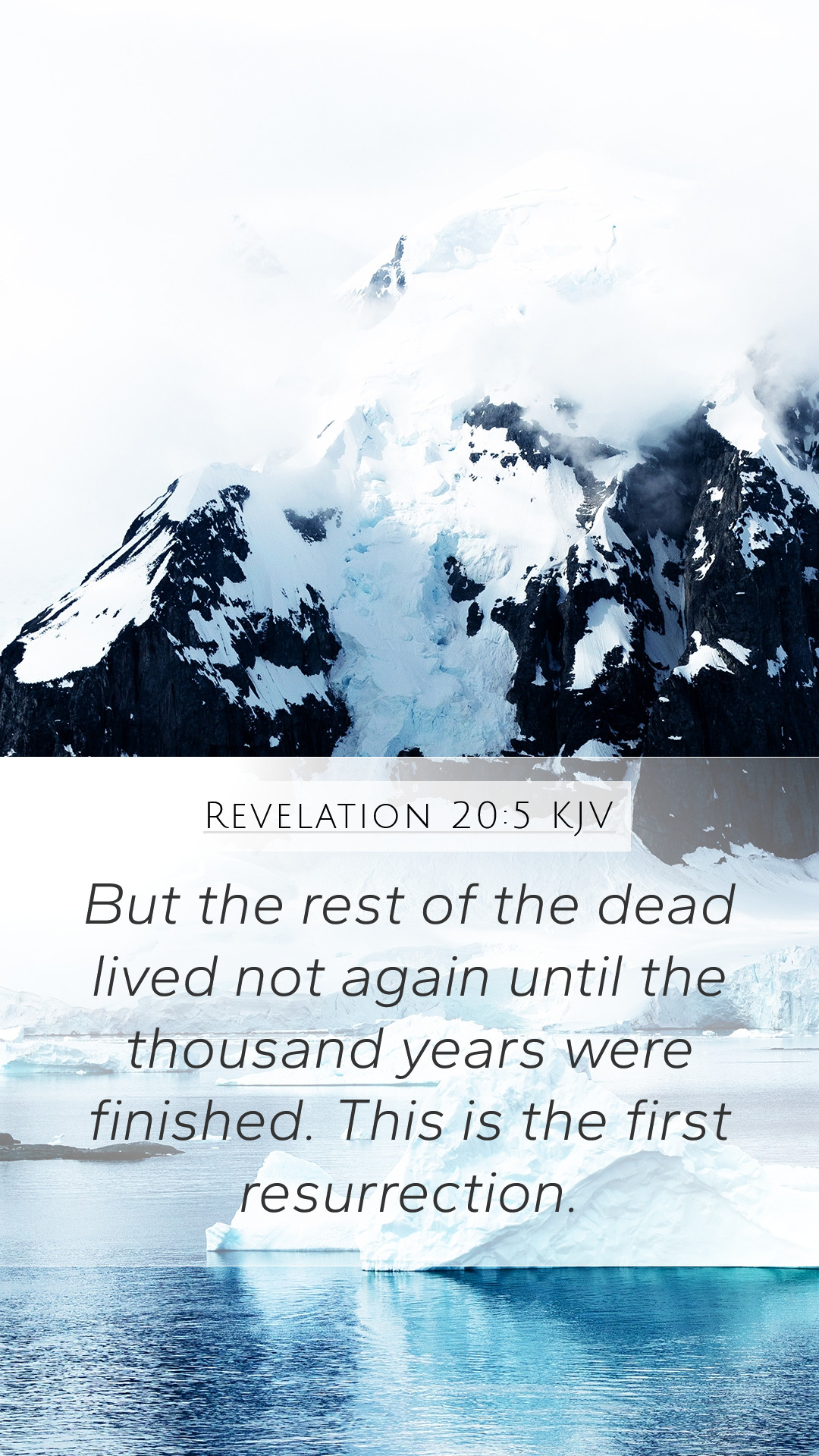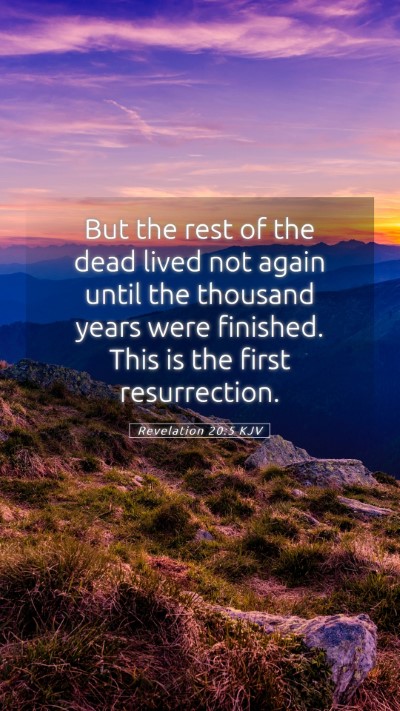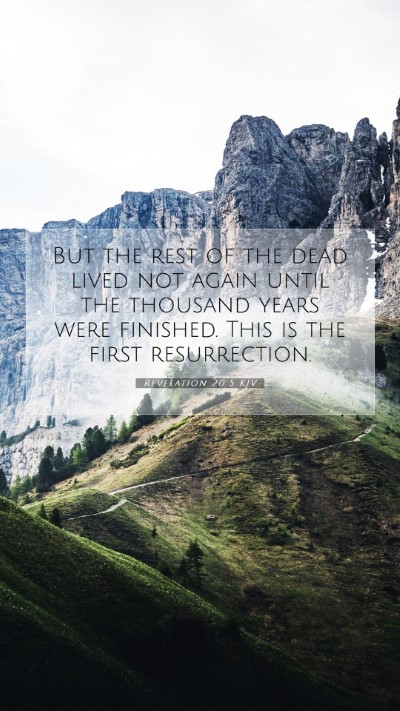Bible Verse: Revelation 20:5
Revelation 20:5 states: "But the rest of the dead lived not again until the thousand years were finished. This is the first resurrection." This verse is pivotal in the discussion of resurrection and judgment within Christian eschatology. Below is a detailed commentary bringing together insights from Matthew Henry, Albert Barnes, and Adam Clarke to provide a comprehensive understanding of its meaning.
Understanding Revelation 20:5
Contextual Significance
In the book of Revelation, John unveils a prophetic vision of the end times. This specific verse occurs in a section discussing the millennial reign of Christ and the final judgment of the dead. It makes a crucial distinction between those who partake in the "first resurrection" and the rest of the dead, who remain inactive until the completion of the thousand years.
Insights from Commentaries
-
Matthew Henry: Henry emphasizes that this verse speaks of a blessed resurrection for the saints who reign with Christ during the millennium. The term “first resurrection” signifies a spiritual resurrection for believers who have died in faith, marking their entrance into eternal life. He notes that the phrase "the rest of the dead" refers to those who did not participate in this resurrection, highlighting the separation between the righteous and the wicked.
-
Albert Barnes: Barnes outlines that the "first resurrection" indicates a special blessing belonging to those who are resurrected at Christ's coming. He argues that the dead who lived not again until the thousand years are a reference to the unsaved dead who will face judgment later. His commentary stresses the hope and assurance offered to believers regarding their resurrection and eternal reward.
-
Adam Clarke: Clarke draws attention to the number "a thousand years," pointing out its symbolic representation of a complete period of Christ's reign. He interprets the first resurrection as primarily spiritual, pointing out that those who accept Christ are spiritually resurrected in this life. Clarke also discusses the implications of being part of this resurrection versus the fate of the "rest of the dead," underlining the importance of spiritual readiness and faithfulness.
Thematic Analysis
Revelation 20:5 encapsulates several critical themes in biblical eschatology:
- Hope of Resurrection: This verse offers hope to believers about their future resurrection. Through Christ’s victory over death, the faithful look forward to a glorious resurrection.
- Judgment and Separation: The distinction between the living and the dead emphasizes the final outcomes for different classes of individuals based on their faith and actions during their earthly lives.
- Eschatological Timeline: The mention of the thousand years sets a chronological framework, suggesting an ordered sequence of events in God’s plan for creation and redemption.
Application of Revelation 20:5
This verse supports several practical applications for believers:
- Encouragement in Trials: Knowing that there is a future resurrection offers comfort during periods of suffering, reminding us that our current afflictions are temporary.
- Call to Faithfulness: It underscores the necessity for Christians to remain steadfast in their faith, assuring them of rewards for their perseverance.
- Importance of Evangelism: This verse can spur believers to take action in sharing their faith with others, emphasizing the urgency of accepting Christ to be part of the first resurrection.
Cross References
Revelation 20:5 connects with several other scripture passages, enhancing its meanings:
- 1 Thessalonians 4:16-17: Discusses the resurrection of the dead in Christ during the Lord’s return.
- John 5:28-29: Highlights the resurrection of life for those who have done good, and resurrection of condemnation for the evil.
- Romans 6:5: Explains that we shall also be in the likeness of Christ's resurrection.
Conclusion
Revelation 20:5 stands as a pivotal declaration of the Christian faith regarding life after death and the hope of resurrection. The layers of meaning found in this verse, explored through public domain commentaries, enrich our understanding and provide critical insights for Bible study groups, online Bible study platforms, and individual Bible study endeavors. The insights gained from this verse are essential for those seeking to understand scripture, analyze biblical teachings, and apply its truths to everyday life.


